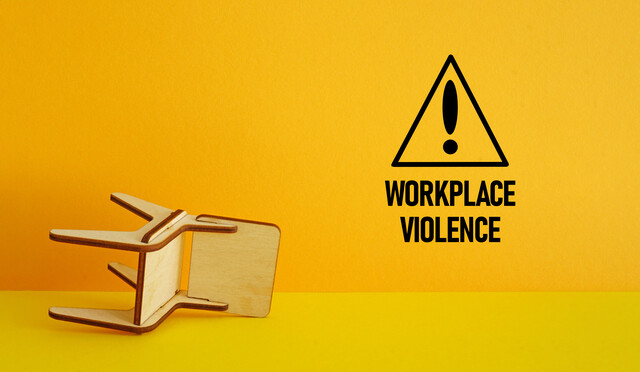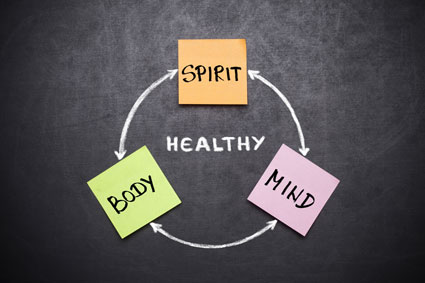"How great the world would be if everyone in it were like me. "
How many people think like that? Probably more than we care to acknowledge. However, this world is a hodgepodge of different ideas, beliefs, opinions, and viewpoints -- so many that at times it would be difficult to impossible to get any two people agree 100 percent on anything.
When differences occur we have a tendency to judge the other person. Especially when that difference is on a major issue that is strongly believed. What happens is that people become committed to their "positions"-- they are certain they are right, their way is the best way, and their way is the only way.
For those on the spiritual path, ego has been said to mean "Edging God Out." (Ego).
When Ego is in control, often relationships will fail, and people separate.This also occurs in business relationships, world issues, and (of course) politics.
"If you aren't a member of my social club, political party, or tennis group, then you are inferior in some shape or form."
Each person or entity -- be it a political club, or a friend from a small town in Iowa -- has a certain way of looking at things. Many people are quite fixed that theirs is definitely the right and only way. Countries have gone to war over individual fixed positions.
Many people feel their mission in life is to fix you. The fix will resemble their concept of what that should look like. Once this is accomplished, then you will be okay, and we can get along. Until then you are separate from others and need repair.
|
1) I'm Ok, You're Ok: This means what it says. We see both ourselves and others as OK just the way they are. 2) I'm OK, You're Not OK. Here we see ourselves as the one who is fine and other people are the ones we need to fix. 3) You're OK and I am Not OK. In this position we see others as superior and ourselves as inferior to others. 4) You're not OK and I am not OK. This position is one of depression and despair. People in this position see both as not OK. |
In some situations we may feel we are okay, but the other person is not. Or we may feel that the other person is fine, and we aren't. Our positions can shift and change with the experience. However, you will find that there is one position that most people will operate out of more than others on a regular basis.
What if the person or situation never does change? Will they spend their lives fighting a winless battle? Some will.
No matter what we do, there is no guarantee that anyone will ever change -- and if they did, how much time and energy would it take to get them to change? And would they then be to our liking and acceptance? Those who are bent on forcing compliance out of others are fighting a losing battle and empowering their ego.
How is it serving them?
The saying "It Is What It Is" is pretty accurate. In most situations what can we really do about it? There are times when we can and should act, but there seems to be more times when we really cannot. If we continue to hold on and let ourselves become attached to this position, it does end up becoming our central life position.
We cannot base our happiness on outcomes that cannot be controlled. In life we can only give our best. Once we do , we must learn to let go and move forward. It has been said that a happy person is the one who can accept things. It is more realistic to say they are happy because they know they have given the best they can, and will accept whatever happens.
The ego loves control. Anytime you are frustrated and mad because things are not going a certain way, ask yourself why. Is it because you are not getting your way? If so, then ego is appearing. Once you are aware of that, it will help you free yourself from its grip. Many people never take time to ask themselves this and continue on fighting, only to find in the end that they are exhausted and still in the same spot.
Letting things be seems to work and gives you peace at the same time. As long as you are invested in changing the situation to meet your demands and can't be happy until you have won, you are headed for disappointment.
Werner Erhard, the developer of EST Training, has said that life has a way of working itself out. Why is it we have such a hard time accepting that? Like Sisyphus, who continually tried to roll a boulder up a hill and never made it, we continually try to control things and beat ourselves up when we can't.
The next time you are presented with a situation that you are not happy about, ask yourself what is your priority? Do you want to be close with this person or do you prefer to be right -- even at the risk of damaging the relationship?
If you find yourself in a heated argument that is only escalating, stop and regroup. Take a breath and center yourself in that part of you that is in balance with life. Sort yourself out, as they say in Transactional Analysis.
Perhaps after doing this you may even want to apologize. There are many things much worse -- although your ego may disagree. What will all this drama matter a year from now, and is it really worth your energy and possible damage to a relationship?
Listen more and talk less. When you get into a situation that pushes your buttons, pull yourself back. Get in to the observer mode and watch and listen. Your ego probably would prefer to fight and you may have a time reeling it in -- but do. Just observe and listen. It takes two to fight.
Bear in mind that this issue that seems so huge now, probably means nothing in the long run. What would you do if the person you are having the issue with died tomorrow? How would you feel and would this be such a big deal?
If you have children or other people who look up to you as a role model, keep in mind that you are showing people who you are by how you handle yourself. Is this who you would want your children or other people to be?
It is very easy to get caught in the moment and hooked into a fight. It is not easy to repair damage.
What would the world be like if we all made our choice based upon acceptance and respect for each other? It can happen -- one person at time.































